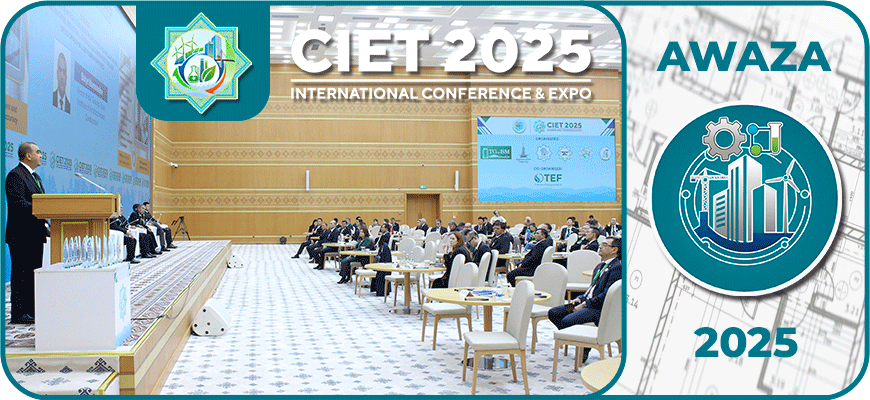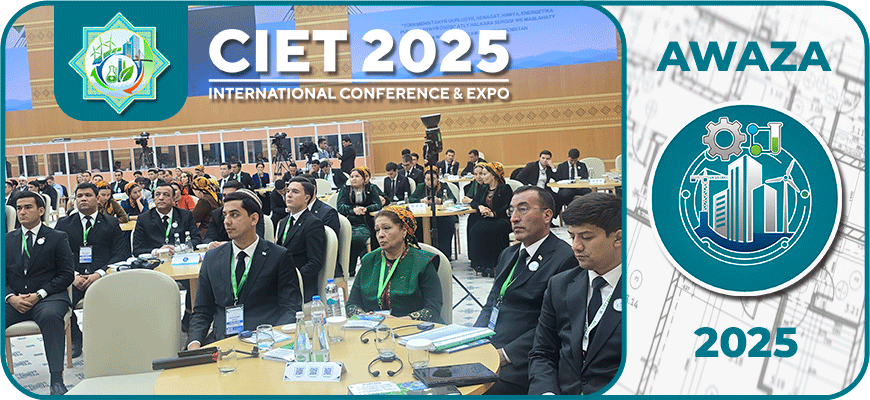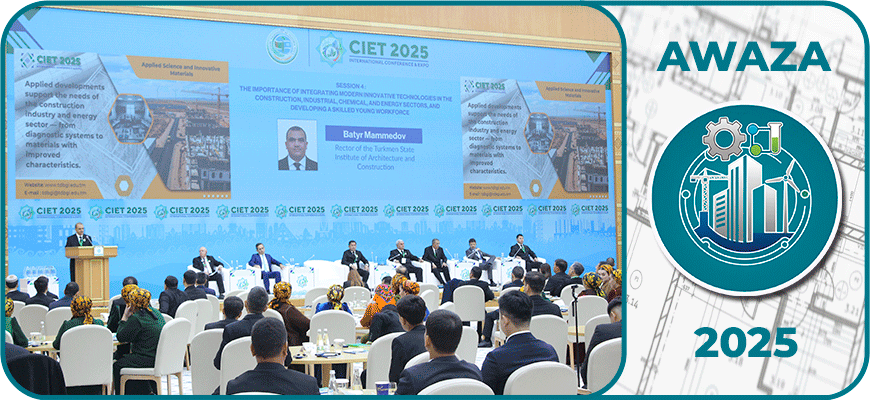




In the Era of the Revival of the New Epoch of the Powerful State, proclaimed the “International Year of Peace and Trust”, the International Exhibition and Conference “Development of Construction, Industry, Chemical, and Energy Sectors of Turkmenistan”, held on November 3–4, 2025, in the beautiful site of our Motherland — the “Awaza” National Tourist Zone — is one of the most significant events in the country’s economic development.

The goal of the event is to attract foreign investment to Turkmenistan’s key economic sectors, as well as to promote international and regional cooperation. At the exhibition, various companies present the latest technological solutions and equipment in construction, industry, and energy. This platform creates broad opportunities for establishing business contacts, exchanging experience, and opening new areas of partnership.
During the fourth session of the International Conference “Development of Construction, Industry, Chemical, and Energy Sectors of Turkmenistan,” the Rector of the Turkmen State Architecture and Construction Institute, Batyr Mammedov, delivered a speech titled “The Interconnection of Science, Education, and Industry as a Basis for Sustainable Development.”

He clearly explained the abilities of the 21st century’s engineer as a specialist who combines the classical engineering school of precise calculations with data analytics, artificial intelligence, and cybersecurity competencies. Therefore, the institute is transitioning from the traditional “profession — exam” education model to the “problem — prototype — test” model, which is implemented on real-life projects.
The Turkmen State Architecture and Construction Institute is being actively developed as a higher educational institution integrating the fields of architecture, construction, information technology, cybersecurity, materials science, and engineering design. Curricula are updated according to the needs of industry and students gain education based on real-life examples.

In recent years, the following new specialties have been introduced at the institute:
These programs are designed to develop competencies in engineering risk management, measurement culture and digital modeling.
In the future, new innovative programs such as “Smart Home Designer” and “Virtual Project Engineer” are planned to be launched. Based on the Internet of Things (IoT), artificial intelligence, digital assistants, and VR/AR technologies, these programs will train young professionals for “green” industries and digital ecosystems.
Under the guidance of professors, students are participating in the development of “smart building” systems in the city of Arkadag. They are creating software solutions and mastering telemetry, dispatching, and predictive analysis of engineering systems. Using VR/AR technologies, students simulate construction site’s safety scenarios and learn new technologies to ensure human and object safety.
The National Leader of Turkmenistan, Chairman of the Halk Maslahaty, Hero Arkadag, initiated major urban development programs that are being consistently continued under the leadership of the Honored Architect of Turkmenistan, Arkadagly Hero Serdar.
The white-marble view of Ashgabat reflects the harmony between national traditions and modern technologies. Among these achievements are major projects implemented with the participation of the institute’s professors:
In these facilities were widely used “green” technologies, digital design, and innovative visualization methods.
Today, the Turkmen State Architecture and Construction Institute is not only an educational center but also a leading hub for scientific research. Studies are being conducted on high-strength kaolinite concrete, phosphogypsum recycling, and energy efficiency. Over the past year, more than 20 software patents have been obtained.
The institute ranks in international ratings — including Times Higher Education (World, Impact, Asia, Young) and Green Metric World University Ranking. It is also a member of the International Association of Universities (IAU), the Association of Construction Universities, and other international organizations. The institute actively cooperates with universities in the USA, Germany, India, Russia, Romania, Belarus, Italy and Malaysia.
With the constant support of the Esteemed President of Turkmenistan, construction of the new campus of the Turkmen State Architecture and Construction Institute is underway in Ashgabat. The author of the project is a faculty member of the institute. The campus, with a total area of 32.2 hectares, is designed for 5,000 students.
The campus includes:
The new campus will feature a “smart building” system, an energy efficiency assessment system (LCA), and an artificial intelligence ethics management system (AI Governance).
The Turkmen State Architecture and Construction Institute is introducing new forms of international cooperation:
These initiatives are aimed at promoting open innovation and strengthening the competitiveness of applied sciences in the international arena.

Turkmen State Architecture and Construction Institute
